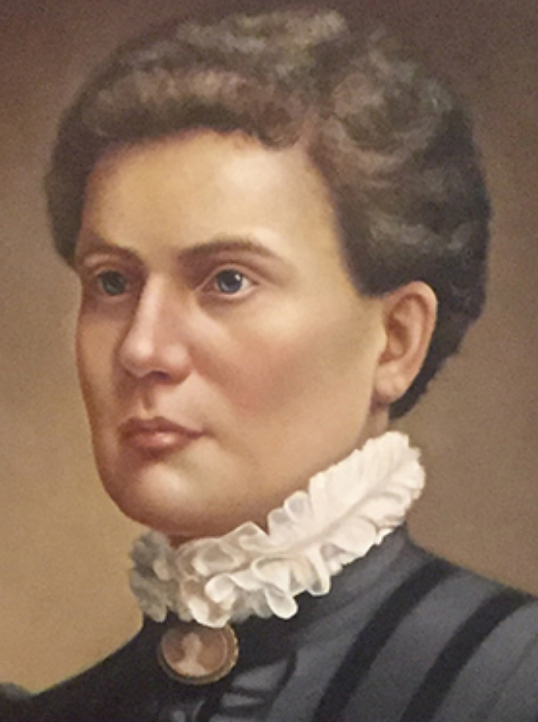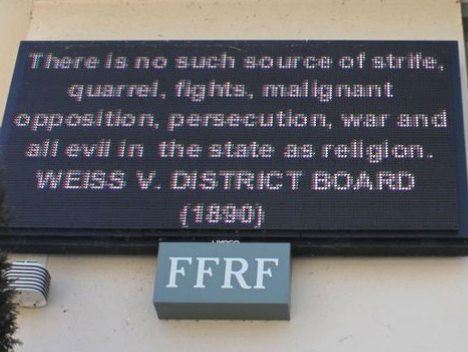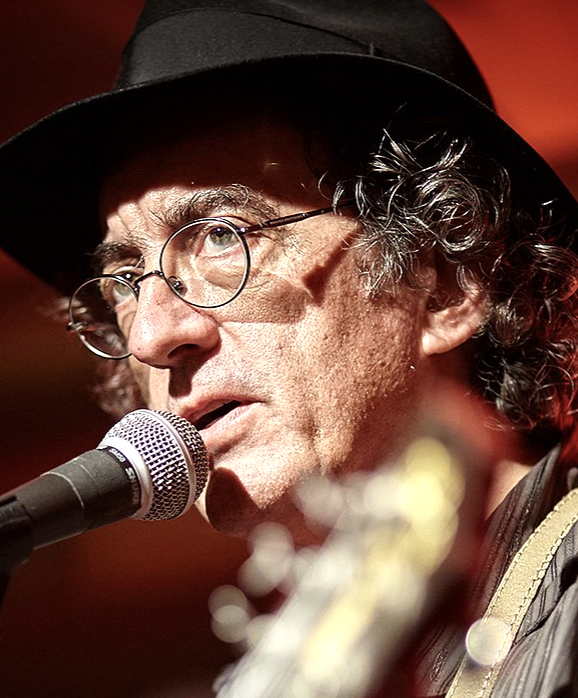March 18
Marilla Ricker

On this date in 1840, Marilla Marks Ricker (née Young) was born in New Durham, New Hampshire. She became a trail-blazing attorney, abolitionist, humanitarian and suffragist. Her father, Jonathan Young, reportedly related to Mormon prophet Brigham Young, was a freethinker and proponent of women’s rights who took her to courtrooms and town meetings.
As a child she witnessed a “fiery” sermon about hell at her mother’s Free Will Baptist church, she later wrote. (Boston Business Folio, 1895.) “Do you wonder that I, a child of ten years, said to my father, who was a freethinker, infidel, atheist, or whatever else you please to call him: ‘I hate my mother’s church. I will not go there again.’ “
She started teaching at age 16, refusing to read from the bible during class, instead preferring literary works, including those of Emerson. When the school committee told her bible reading was mandatory, she refused to comply and left the profession.
In 1863 she married John Ricker, a man 33 years her senior. He died five years later, leaving an estate that made her financially independent. She studied law in Washington, D.C., determined to help the downtrodden. She passed the bar with the highest grade of anyone admitted in 1882. Her first public courtroom appearance was as assistant counsel to Robert G. Ingersoll and became known as the “prisoner’s friend,” successfully challenging a district law that indefinitely confined poor criminals unable to pay fees.
Ricker in 1871 had the distinction of being the first U.S. woman to vote using the argument that women were “electors” under the Fourteenth Amendment. In 1890 she won the right of women to practice law in New Hampshire. She was admitted to the U.S. Supreme Court bar in 1891. She was denied the right to run for governor of New Hampshire in 1910 on a woman’s rights platform by the state attorney general. Her books include The Four Gospels (1911), I Don’t Know, Do You? (1916) and I Am Not Afraid, Are You? (1917).
In I Am Not Afraid she wrote: “A religious person is a dangerous person. He may not become a thief or a murderer, but he is liable to become a nuisance. He carries with him many foolish and harmful superstitions, and he is possessed with the notion that it is his duty to give these superstitions to others.” (D. 1920)
“A steeple is no more to be excluded from taxation than a smoke stack.”
— Ricker, "I Am Not Afraid, Are You?" (1917)
Weiss v. District Board

In 1886, Catholic parents in Edgerton, Wis., protested the reading of the King James Bible during opening exercises in village schools. They considered the Douay version the only correct translation. When the school board refused to change, they sued on the grounds that daily Protestant readings contradicted Sec. 3, Article X of the Wisconsin Constitution that forbid sectarian instruction in the public schools.
The circuit court ruled in 1888 that the readings were not sectarian because both translations were of the same work. The parents appealed to the state Supreme Court. On March 18, 1890, it overruled the circuit court, concluding that bible reading constituted sectarian instruction and illegally united the functions of church and state.
“There is no such source and cause of strife, quarrel, fights, malignant opposition, persecution, and war, and all evil in the state as religion. Let it once enter our civil affairs, our government would soon be destroyed. Let it once enter our common schools, they would be destroyed.”
— Justice H.S. Orton, concurring opinion in Weiss v. District Board (March 18, 1890)
James McMurtry

On this date in 1962, singer-songwriter James Lawrence McMurtry was born to Josephine (Ballard Scott) and Larry McMurtry in Fort Worth, Texas. “My folks divorced when I was about 7. We all wound up in Virginia in different parts of the state. I lived with my dad, so I learned to get along with him pretty good,” McMurtry later said. (hobotrashcan.com, April 17, 2008)
His father, award-winning novelist Larry McMurtry, gave him his first guitar at age 7, and his mother, a college English professor and Shakespeare scholar who read Proust in French, taught him how to play it. After divorcing, his father taught creative writing and college English while writing novels. His first novel in 1961 was adapted for film as “Hud,” starring Paul Newman. “The Last Picture Show” (1966) was also adapted for film. Later works, the 843-page novel “Lonesome Dove” and the script for “Brokeback Mountain,” brought him a Pulitzer Prize and an Oscar.
James made his film debut at age 12, playing Cybill Shepherd’s bratty brother in director Peter Bogdanovich’s “Daisy Miller,” a role he thinks his dad arranged. He began performing in his teens and studied English and Spanish at the University of Arizona in Tucson before settling in San Antonio. His debut album, “Too Long in the Wasteland” (1989), focused on Americana and “roots” music and was co-produced by John Mellencamp.
Work on his second album “Candyland,” released in 1992, took a back seat to dealing with the arrival of newborn son Curtis. McMurtry and his artist wife Elena Eidelberg split up when Curtis, now a successful performer and songwriter, was 10.
Eleven more albums have followed “Candyland” as of this writing in 2022. McMurtry says Steve Earle is his role model on how to write good political songs without turning them into sermons no one wants to pay to hear. His main influences as a songwriter? “Kris Kristofferson and John Prine, mostly.” An example is “State of the Union” with its lines about his sister leaving a restaurant before a family argument got worse: “Went to Wednesday night prayer at the new Christian church / With a cross on her neck and a nine in her purse / She might be the wisest of us.” (The “nine” is a 9-mm handgun.)
“[McMurtry] does admit to being a lifelong confirmed atheist, much like the cheerful narrator of his anthemic song, ‘If It Don’t Bleed,’ who toasts, ‘Save your prayers for yourself, I raise my glass to your health!’ ” (The Paper, Sept. 3, 2021) The song, on his album “The Horses and the Hounds” (2021), continues: “But I wouldn’t get down on my knees on a bet / I’m near enough to Jesus as I ever want to get / Seeking salvation isn’t part of my general plan.”
Larry McMurtry also lacked religious belief, he said in an interview with writer Benito Vila shortly before his death in 2021 at age 84: “I am in no way a spiritual person. I wrote a letter to the pastor of my Methodist church when I was in the fourth grade, explaining to the pastor I was quitting the church. I am a realist, an atheist, and I have no thoughts or opinions about spirituality or the after life, or what inspiration the stars may hold.”
As of this writing in 2023, McMurtry lives south of Austin in Lockhart, Texas. His song “The Horses and the Hounds” (the album’s title track) was nominated for Song of the Year in 2021 at the Americana Music Awards. He performed while wearing a dress in May 2023 in Nashville to protest a Tennessee law banning “male or female impersonators” from performing in public spaces or in the presence of children.
PHOTO: James McMurtry in 2017 in Eppstein, Germany; Christian Düringer photo under CC 4.0.
“I’ve never been religious. But most people seem religious, and it gets more and more bothersome as religious language invades common, spoken English. … Politicians have always tried to out-Christian one another. It was a big deal having a Black president, but it would be a bigger deal having an atheist president.”
— James McMurtry interview (The Absolute Sound, Nov. 23, 2021)
